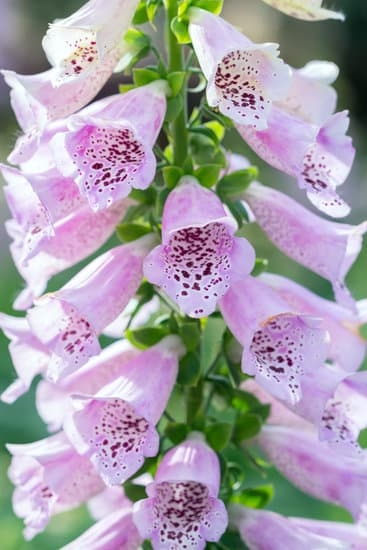Vegetable Gardening Tips Youtube
There is no doubt that vegetable gardening is a great way to get exercise, fresh air and connect with nature. However, it can also be a great way to save money on groceries and produce. The following are some tips for getting started with vegetable gardening:
Pick the Right Spot
One of the most important things to consider when starting a vegetable garden is where to plant it. You want to make sure to pick a spot that gets plenty of sunlight and is relatively free of pests and diseases. You may also want to consider the type of vegetables you want to grow. Some vegetables, such as tomatoes, need lots of sun, while others, such as carrots, can grow in shadier spots.
Start Small
When starting a vegetable garden, it is important to start small. This will help you get used to the process and figure out what works best for you. You can always expand your garden later on.
Choose the Right Vegetables
Not all vegetables are created equal. Some vegetables are easier to grow than others. When starting a vegetable garden, it is important to choose vegetables that are easy to grow in your area. For example, if you live in a warm climate, you may want to grow tomatoes, peppers and cucumbers. If you live in a colder climate, you may want to grow carrots, lettuce and broccoli.
Get a Good Soil
One of the most important things for a successful vegetable garden is good soil. You can buy soil from a garden center, or you can make your own by adding compost or manure to your soil.
Water Regularly
Vegetables need water to grow properly. You should water your garden regularly, especially during hot weather.
Use Fertilizer
Fertilizer is important for a healthy vegetable garden. You can buy fertilizer from a garden center, or you can make your own by using compost or manure.
pest control
One of the main challenges of vegetable gardening is dealing with pests. There are a number of ways to deal with pests, including using organic methods such as traps and barriers, or using chemical pesticides.
Weed Control
Weeds can be a major nuisance in a vegetable garden. The best way to deal with weeds is to prevent them from growing in the first place. You can do this by using mulch or weed barriers.
Vegetable Gardening Hints And Tips
Planning your garden
The first step in creating a vegetable garden is to plan what you want to grow. This includes deciding on the size of the garden, the layout of the plants, and the type of vegetables you want to grow.
When planning the size of your garden, consider the amount of space you have available and how much produce you want to harvest. It is also important to take into account the size of the plants when they are fully grown. Root vegetables, such as carrots and beets, tend to be relatively small, while leafy vegetables, such as lettuce and spinach, can grow quite large.
The layout of your garden is also important. It is best to group plants with similar needs together. For example, tomatoes, peppers, and eggplants prefer warm temperatures and should be planted in a sunny spot. On the other hand, carrots and beets prefer cool weather and should be planted in a shaded area.
When deciding which vegetables to grow, it is helpful to think about the different seasons. In the spring, you can grow crops such as lettuce, spinach, and radishes. In the summer, you can grow tomatoes, peppers, and cucumbers. In the fall, you can grow crops such as carrots, beets, and pumpkins. And in the winter, you can grow crops such as kale, broccoli, and cauliflower.
Choosing the right soil
The type of soil you use in your garden is important, as it affects the growth of the plants. Most vegetables prefer a soil that is rich in organic matter. This means that the soil is loose and has a high percentage of organic matter, such as compost or manure.
If your garden soil is not rich in organic matter, you can add compost or manure to it. You can also add organic matter to the soil by planting cover crops. Cover crops are plants that are grown specifically to improve the soil. They are usually planted in the fall and winter, and then tilled into the soil before the garden is planted.
Choosing the right plants
Not all vegetables are suitable for growing in a garden. Some vegetables, such as potatoes and sweet potatoes, are best grown in a container. Others, such as corn, are best grown in a field.
When choosing vegetables to grow in your garden, it is important to select varieties that are suited for your climate. Some vegetables, such as tomatoes, can be grown in a wide range of climates, while others, such as celery, are best grown in a cooler climate.
It is also important to choose vegetables that are suited for your soil type. Some vegetables, such as carrots, prefer a soil that is rich in organic matter, while others, such as lettuce, prefer a soil that is sandy or loamy.
Preparing the soil
The preparation of the soil is important for the success of your garden. The soil should be worked well ahead of time, and any rocks or large clumps should be removed. The soil should also be amended with compost or manure, and any existing weeds should be removed.
If the soil is not worked well in advance, the vegetables may not grow well, and they may be susceptible to pests and diseases. Additionally, the vegetables may not produce as much fruit or vegetables as they would if the soil was prepared properly.
Planting the vegetables
Once the soil is prepared, it is time to plant the vegetables. This can be done by either planting them in rows or by planting them in clusters. When planting in rows, the plants should be spaced evenly apart, and the rows should be spaced evenly apart. When planting in clusters, the plants should be spaced evenly apart, and the clusters should be spaced evenly apart.
When planting the vegetables, it is important to plant them at the correct depth. The plants should be planted so that the top of the soil is level with the top of the plant. This will help ensure that the vegetables receive the correct amount of water and sunlight.
Watering the vegetables
One of the most important tasks for a vegetable gardener is to water the plants. Vegetables need water to grow, and if they do not receive enough water, they will not produce as much fruit or vegetables.
The best way to water the vegetables is to water them at the base of the plant. This will help ensure that the roots receive the water they need. It is also important to water the vegetables early in the morning, so that the water has a chance to evaporate before the sun sets.
Fertilizing the vegetables
Fertilizing the vegetables is another important task for a vegetable gardener. Vegetables need nitrogen, phosphorus, and potassium to grow and produce fruit or vegetables.
There are a number of ways to fertilize the vegetables. One way is to add a general purpose fertilizer to the soil before planting the vegetables. Another way is to add a fertilizer to the water that is used to water the plants.
Pest and disease control
Pest and disease control is another important task for a vegetable gardener. Pests and diseases can damage the plants and reduce the amount of fruit or vegetables that they produce.
There are a number of ways to control pests and diseases. One way is to use pesticides. Another way is to use organic methods, such as crop rotation and companion planting.
Harvesting the vegetables
The final task for a vegetable gardener is to harvest the vegetables. This can be done by either picking them by hand or by using a harvesting tool.
When harvesting the vegetables, it is important to harvest them at the correct stage of development. Vegetables that are harvested too early will not be as flavorful or as nutritious as vegetables that are harvested at the correct stage of development.
Vegetables are a great addition to any diet, and they are especially beneficial for people who are trying to eat healthy. By following the tips in this article, you can create a successful vegetable garden that will provide you with a bountiful harvest of fresh vegetables.
Raised Bed Gardening Tips Vegetables
are a healthy and delicious addition to any diet, and with a little bit of effort, they can be grown right in your backyard. One of the best ways to do this is through raised bed gardening. With a raised bed garden, you can create a contained garden space in your yard that is perfect for growing vegetables. Here are a few tips for creating and caring for a raised bed garden:
1. Choose the right spot. When choosing a spot for your raised bed garden, make sure to pick a location that gets plenty of sunlight. The spot should also be relatively level, so you’ll want to avoid areas that are too hilly.
2. Size matters. When choosing the size of your raised bed garden, keep in mind that you’ll need to have enough space to grow the vegetables you want to eat. A good rule of thumb is to make the bed at least four feet wide and eight feet long. This will give you plenty of room to grow a variety of vegetables.
3. Use quality soil. The key to a successful raised bed garden is using high-quality soil. You can either purchase soil from a garden center or make your own by mixing together equal parts compost, soil, and sand.
4. Build your bed. Once you have chosen a spot and gathered the right materials, it’s time to build your raised bed garden. To do this, use a shovel to create a trench that is the same width as your bed and about eight inches deep. Add the soil mixture to the trench and use a rake to smooth it out. Then, place the lumber on top of the soil and nail or screw it together.
5. Mulch it. Once your raised bed garden is built, you’ll want to add a layer of mulch to help keep the soil healthy and moist. You can use a variety of materials for mulch, such as leaves, straw, or bark chips.
6. Water it. It’s important to water your raised bed garden regularly, especially during the hot summer months. A good way to water your garden is to use a soaker hose. This will help to distribute the water evenly and prevent it from running off the bed.
7. Fertilize it. You’ll also want to fertilize your raised bed garden regularly. A good way to do this is to add a layer of compost to the top of the soil each year.
By following these tips, you can create and care for a beautiful raised bed garden that will yield delicious vegetables all season long.
Tips For Vegetable Gardens
1. Planning is key
When starting a vegetable garden, it is important to plan out your space and what you want to grow. This will help you to be efficient with your space and make the most of your garden.
2. Use organic matter
Adding organic matter to your soil is important for growing healthy vegetables. Organic matter helps to improve the soil structure, drainage and water retention.
3. Use fertilizer
Fertilizer is also important for growing healthy vegetables. A good fertilizer will help to provide the plants with the nutrients they need to grow.
4. Mulch your garden
Mulching your garden is a great way to keep the soil healthy and protect your plants from weeds. Mulch also helps to keep the soil cool in the summer and warm in the winter.
5. Water your garden regularly
It is important to water your garden regularly, especially during the hot summer months. Vegetables need at least 1 inch of water per week to grow well.
6. Harvest your vegetables regularly
It is important to harvest your vegetables regularly so that they do not over-grow and get bitter. Harvesting your vegetables also encourages new growth.
Pr Tips For Vegetable Gardens
Are you looking to start a vegetable garden, but don’t know where to start? Check out these pro tips for vegetable gardening!
1. Choose the right location. When choosing a location for your vegetable garden, make sure to pick a spot that gets plenty of sunlight. Vegetables need at least six hours of sunlight per day to grow properly.
2. Amend the soil. Before planting your vegetables, be sure to amend the soil with compost or manure. This will help to improve the soil’s fertility and drainage.
3. Plant vegetables in succession. To ensure a continuous harvest, plant different varieties of vegetables in succession. For example, plant early maturing vegetables first, and then plant later maturing vegetables a few weeks later.
4. Water vegetables regularly. Vegetables need regular watering to stay healthy and productive. Be sure to water your vegetables early in the morning or late in the evening, so the plants have a chance to dry off before nightfall.
5. Fertilize vegetables regularly. Vegetables need regular fertilization to stay healthy and productive. Use a balanced fertilizer such as 10-10-10 or 15-15-15. Fertilize your vegetables once a week, using half the recommended amount.
6. Mulch vegetables. To help keep the soil moist and to protect the plants from weeds, be sure to mulch your vegetables with straw, leaves, or compost.
7. Harvest vegetables regularly. Vegetables should be harvested regularly to ensure a continuous harvest. Don’t let the vegetables get too big, or they will become tough and inedible.
8. Store vegetables properly. After harvesting your vegetables, be sure to store them properly. Vegetables should be stored in a cool, dry place, away from direct sunlight.

Welcome to my gardening blog! I am passionate about plants and enjoy sharing my knowledge and experiences with others. In this blog, I will write about everything related to gardening, from tips on how to get started to updates on my own garden projects.





